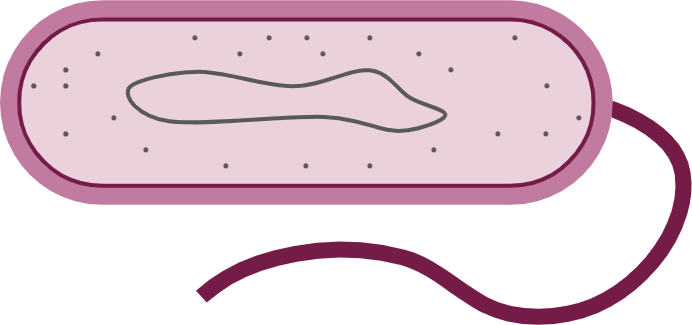Bacteria in the human digestive system
I can describe the important roles of bacteria in the human digestive system.
Bacteria in the human digestive system
I can describe the important roles of bacteria in the human digestive system.
These resources will be removed by end of Summer Term 2025.
Switch to our new teaching resources now - designed by teachers and leading subject experts, and tested in classrooms.
These resources were created for remote use during the pandemic and are not designed for classroom teaching.
Lesson details
Key learning points
- Bacteria are living organisms; each bacterium is a microorganism made of a single living cell.
- Some bacteria are pathogens that cause diseases, but many bacteria are harmless and some are helpful.
- Helpful bacteria live inside the human digestive system.
- They release enzymes that digest food we cannot digest ourselves.
- They also help to protect us against pathogens that enter the digestive system by competing against them.
Keywords
Bacteria - Bacteria are unicellular organisms.
Microorganism - A microorganism is an organism that can only be seen using a microscope.
Pathogen - A pathogen is a microorganism that causes disease.
Enzyme - An enzyme is a biological catalyst that speeds up the rate of reaction such as digestion.
Competition - Competition occurs between living organisms, e.g. bacteria competes for food and space to live.
Common misconception
All bacteria are bad for us and make us unwell.
The lesson looks at how helpful bacteria in the gut help us digest our food, provide vitamins, and outcompete harmful bacteria.
To help you plan your year 8 science lesson on: Bacteria in the human digestive system, download all teaching resources for free and adapt to suit your pupils' needs...
To help you plan your year 8 science lesson on: Bacteria in the human digestive system, download all teaching resources for free and adapt to suit your pupils' needs.
The starter quiz will activate and check your pupils' prior knowledge, with versions available both with and without answers in PDF format.
We use learning cycles to break down learning into key concepts or ideas linked to the learning outcome. Each learning cycle features explanations with checks for understanding and practice tasks with feedback. All of this is found in our slide decks, ready for you to download and edit. The practice tasks are also available as printable worksheets and some lessons have additional materials with extra material you might need for teaching the lesson.
The assessment exit quiz will test your pupils' understanding of the key learning points.
Our video is a tool for planning, showing how other teachers might teach the lesson, offering helpful tips, modelled explanations and inspiration for your own delivery in the classroom. Plus, you can set it as homework or revision for pupils and keep their learning on track by sharing an online pupil version of this lesson.
Explore more key stage 3 science lessons from the Human digestive system unit, dive into the full secondary science curriculum, or learn more about lesson planning.

Licence
Starter quiz
6 Questions


sugars
fatty acids and glycerol
amino acids
Exit quiz
6 Questions






